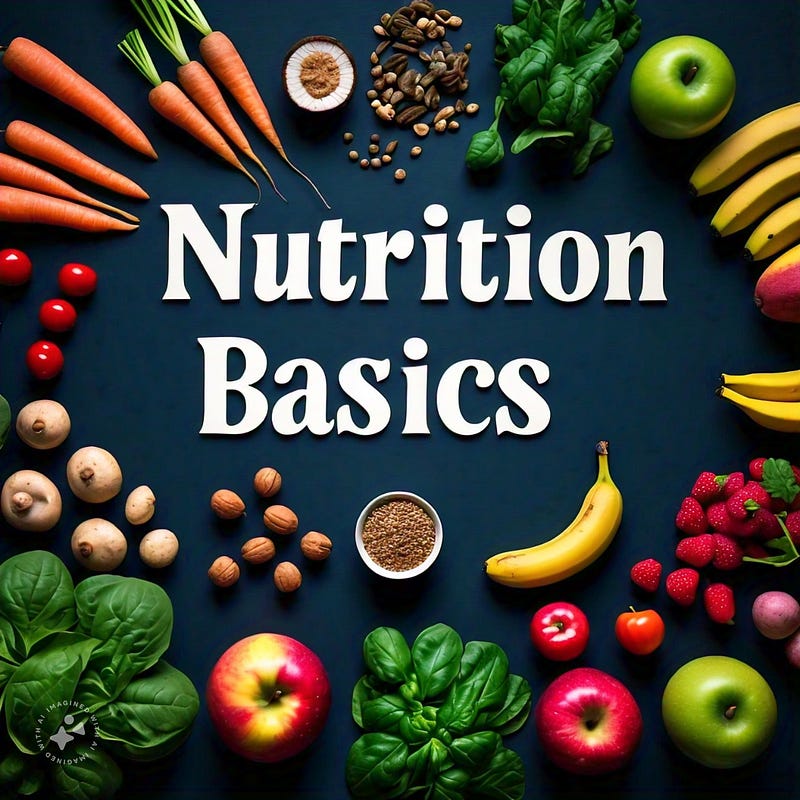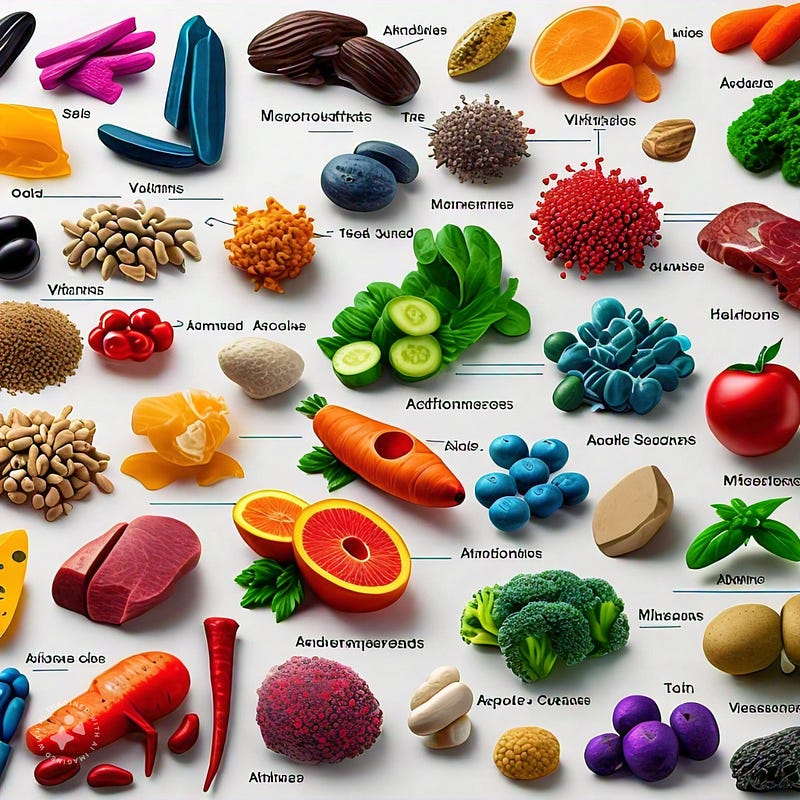🍎🔍Nutrition Basics: What You Need to Know About Macronutrients & Micronutrients

Nutrition is a complex yet fascinating subject that is integral to our health and well-being. The foods we consume are not just for satisfying hunger; they are composed of nutrients that fuel our bodies, repair tissues, and support overall functioning. To truly understand nutrition, it is essential to dive into the world of macronutrients and micronutrients, the building blocks of our diet. These nutrients play unique and critical roles in maintaining our health, and striking the right balance is key to achieving optimal wellness.
Macronutrients: The Energy Providers
Macronutrients are the nutrients that our bodies need in large amounts because they provide the energy necessary for our day-to-day activities. The three primary macronutrients are carbohydrates, proteins, and fats. Each of these serves a distinct function in the body and is essential for maintaining good health.
- Carbohydrates: The Body’s Primary Fuel Source
Carbohydrates are often the most misunderstood macronutrient. While they are sometimes blamed for weight gain, they are, in fact, the body’s primary source of energy. Carbohydrates break down into glucose, which is used by the body for energy. Any excess glucose is stored in the liver and muscles for later use or converted into fat for long-term storage.
- Simple Carbohydrates: Found in foods like fruits, milk, and sugar, simple carbs are quickly absorbed and provide immediate energy. However, they can also lead to spikes in blood sugar levels, followed by crashes, which can cause fatigue and hunger.
- Complex Carbohydrates: These are found in whole grains, vegetables, and legumes. They are digested more slowly, providing a steady supply of energy and helping to maintain stable blood sugar levels.
2. Proteins: The Building Blocks of Life
Proteins are vital for the growth, repair, and maintenance of body tissues. Every cell in the human body contains protein, and it is crucial for building muscle, repairing tissues, and producing enzymes and hormones. Protein is also essential for maintaining a strong immune system.
- Complete Proteins: These contain all nine essential amino acids and are found in animal products like meat, eggs, and dairy. Some plant-based sources, like quinoa and soy, also provide complete proteins.
- Incomplete Proteins: Found in plant-based foods like beans, nuts, and seeds, these proteins lack one or more of the essential amino acids. However, combining different plant proteins can create a complete amino acid profile.
3. Fats: The Essential Nutrient Often Misunderstood
Fats have long been vilified, but they are essential for health. They provide a concentrated source of energy, help in the absorption of fat-soluble vitamins, and are crucial for brain health, hormone production, and insulating the body.
- Saturated Fats: Found in animal products and some plant oils, saturated fats are solid at room temperature. While they should be consumed in moderation, they are not inherently bad and play a role in supporting cell structure.
- Unsaturated Fats: These are found in nuts, seeds, avocados, and fish. Unsaturated fats are beneficial for heart health and help reduce inflammation.
- Trans Fats: Often found in processed foods, trans fats are artificial fats created by adding hydrogen to vegetable oil. These should be avoided as they increase the risk of heart disease.
Discover the Nature’s Secret to Accelerating Weight Loss — Click Here to Learn More
Micronutrients: The Unsung Heroes

Unlike macronutrients, micronutrients are required in much smaller amounts, but they are just as vital for health. Micronutrients include vitamins and minerals, each playing a specific role in keeping the body functioning optimally.
- Vitamins: The Catalysts of Health
Vitamins are organic compounds that are essential for various metabolic processes. They can be classified into two categories: fat-soluble and water-soluble.
- Fat-Soluble Vitamins: These include vitamins A, D, E, and K, which are stored in the body’s fatty tissues and liver. They are vital for processes like vision (Vitamin A), bone health (Vitamin D), and blood clotting (Vitamin K).
- Water-Soluble Vitamins: These include the B-complex vitamins and Vitamin C, which are not stored in the body and must be consumed regularly. They play roles in energy production (B vitamins) and immune function (Vitamin C).
2. Minerals: The Regulators of Body Functions
Minerals are inorganic elements that are critical for health. They are involved in a variety of bodily functions, from bone formation to maintaining heart rhythm.
- Major Minerals: These are needed in larger amounts and include calcium, phosphorus, potassium, sodium, and magnesium. Calcium and phosphorus are crucial for bone health, while potassium and sodium help regulate fluid balance and muscle function.
- Trace Minerals: Required in smaller quantities, these include iron, zinc, selenium, and iodine. Iron is essential for oxygen transport in the blood, while zinc supports immune function and wound healing.
Click Here to Claim Your Free Bonus of Refreshing Tea Remedies
Achieving Balance: The Key to Optimal Health

Balancing macronutrients and micronutrients is critical for maintaining health. A diet rich in whole, unprocessed foods is the best way to ensure you are getting the necessary nutrients. However, modern diets often fall short, making it important to be mindful of nutrient intake.
- Whole Foods Over Processed Foods
Whole foods, such as fruits, vegetables, whole grains, and lean proteins, provide a rich source of both macronutrients and micronutrients. Processed foods, on the other hand, are often stripped of their nutrients and loaded with unhealthy fats, sugars, and sodium.
2. Diversity is Key
Eating a variety of foods ensures that you get a wide range of nutrients. For example, different colored vegetables contain different vitamins and minerals, so aim for a rainbow of colors on your plate.
3. Mindful Eating
Paying attention to what you eat and how much you eat is crucial for maintaining a healthy balance of nutrients. Mindful eating practices, such as listening to hunger cues and savoring each bite, can help prevent overeating and ensure that you are nourishing your body properly.
Conclusion: Nourishing Your Body for Life
Understanding the basics of macronutrients and micronutrients is the first step in making informed dietary choices that support your health and well-being. By focusing on a balanced diet that includes a variety of whole foods, you can ensure that your body gets the nutrients it needs to function at its best. Remember, nutrition is not just about fueling the body; it’s about providing the right tools for your body to thrive, now and in the future.
Comments
Post a Comment